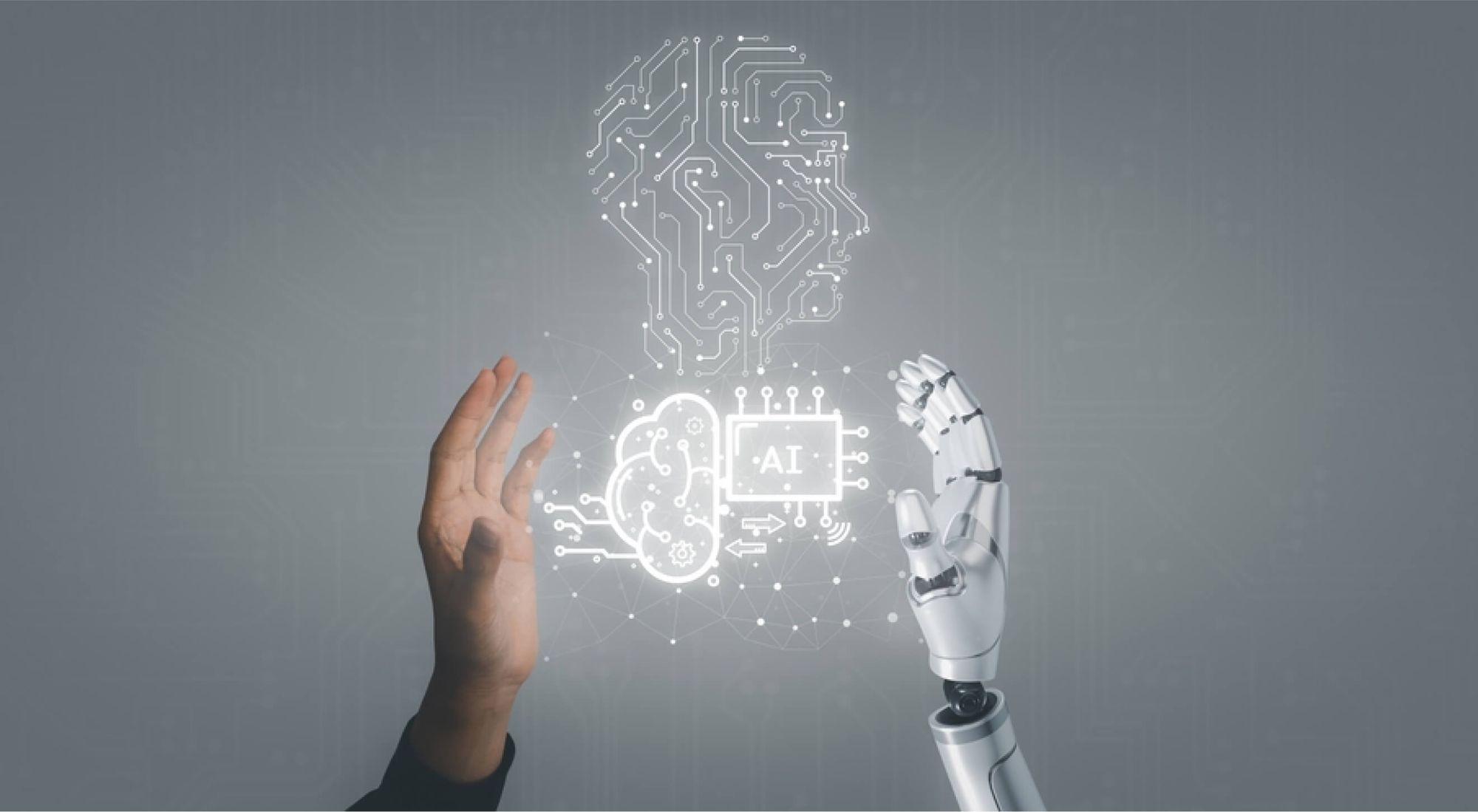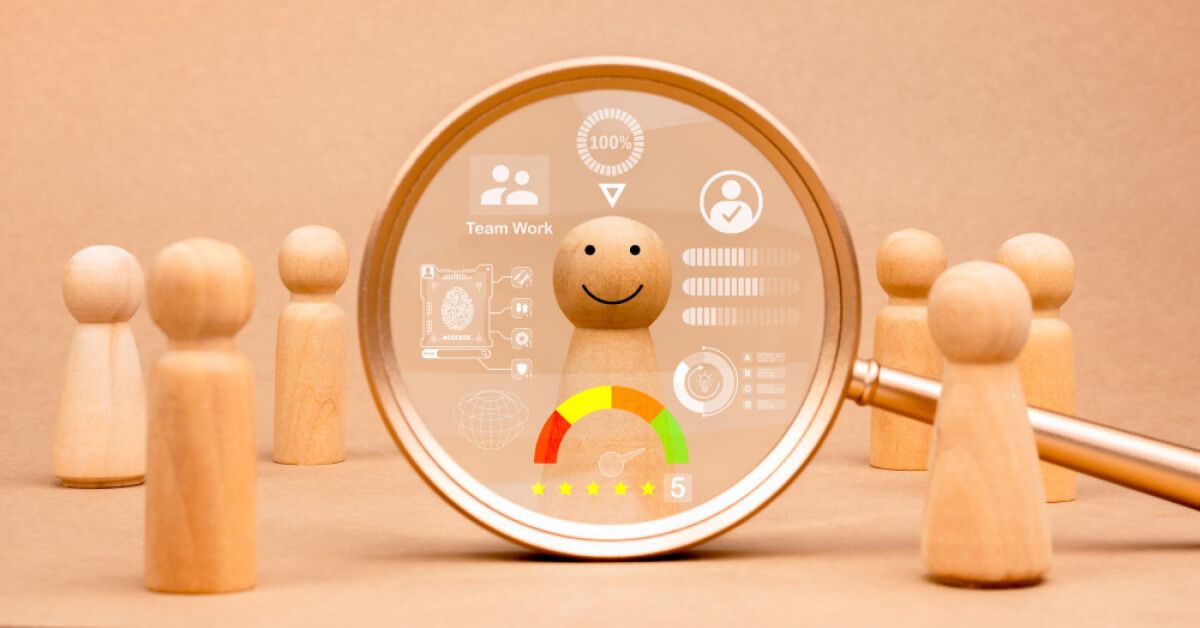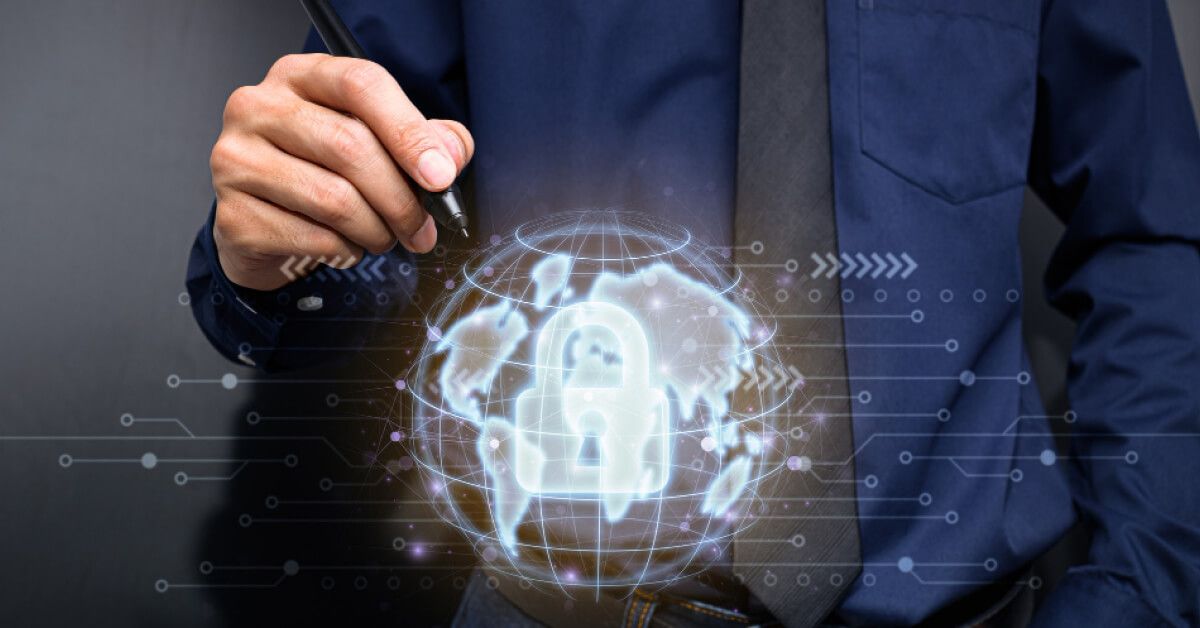What’s the future of employee experience: Trends for 2025 you can’t miss

In 2003, Netflix made a bold move that redefined workplace culture: they scrapped traditional vacation policies and allowed employees to take as much time off as they wanted. At the time, it sounded crazy—wouldn’t people abuse it? But instead of chaos, Netflix saw productivity soar, innovation thrive, and employee satisfaction hit new highs.
That pivotal moment wasn’t just about time off; it was about rethinking the entire employee experience. Fast forward to today, and companies like Patagonia, HubSpot, and Salesforce have followed suit, proving one thing: employee experience isn’t a "nice-to-have" anymore—it’s the backbone of business success.
Now, as we step into 2025, the workplace is once again evolving. New, global employee experience trends are emerging, ready to reshape how organizations attract, engage, and retain top talent. Let’s dive in.
What is employee experience in the context of the world of the future?

In the near future, employee experience will encompass the entire journey of an individual within the workplace, extending beyond job satisfaction.
It will focus on integrating technology, empathetic leadership, and a strong company culture to create an environment where employees feel valued and empowered. Personalized growth paths, diversity as a driver of innovation, and agile structures will replace traditional hierarchies to foster creativity.
Continuous feedback mechanisms, real-time data insights, and wellness initiatives will play a key role in shaping this experience. Organizations will need to prioritize flexibility, adaptability, and inclusivity to stay competitive. Employee experience will serve as a core driver of engagement, retention, and overall business success.
Rethinking the 4 phases of employee experience

Let’s take a look at the 4 phases of employee experience.
- Onboarding: The first employee's journey typically commences with onboarding, where first impressions matter profoundly. Onboarding should move beyond paperwork to provide an immersive, personalized experience that fosters a sense of belonging.
- Engagement: Employee engagement is the heartbeat of a thriving workplace. Beyond annual surveys, the future demands continuous, real-time feedback mechanisms. Engagement requires real-time feedback, meaningful challenges, and collaboration, supported by advanced tools and analytics.
- Development and growth: In the evolving landscape, continuous learning is non-negotiable. Continuous learning is essential, with a focus on personalized learning paths, mentorship, and upskilling powered by technology.
- Transition and offboarding: Even as employees transition within or out of the organization, their experience remains critical to business success. Transitions should ensure smooth handovers, compassionate offboarding, and knowledge transfer while gathering insights for improvement.
Why rethink these phases?
A holistic approach to hr trends employee experience of the future is essential, shifting from transactional methods to personalized, tech-enabled solutions that connect each phase and enable employees to truly thrive.
What are the benefits of prioritizing employee experience?
- Improved employee retention: Positive employee experience trends foster loyalty, reducing turnover rates. Employees are more likely to stay with organizations that invest in their well-being, growth, and overall satisfaction.
- Enhanced organizational performance: When employees feel valued and engaged, they are more productive, innovative, and aligned with organizational goals. This results in better team performance and stronger business outcomes.
- Stronger employer branding: A focus on adaptive employee experience enhances your reputation as an employer of choice. Satisfied employees often share positive feedback about your organization, attracting top talent in a competitive job market.
- Higher adaptability to change: Employees in experience-driven workplaces are better equipped to adapt to organizational changes. A supportive environment encourages resilience and collaboration during transitions or challenges.
- Increased customer satisfaction: Happy employees lead to happy customers. When employees feel valued, they are more motivated to deliver exceptional service, which improves customer satisfaction and loyalty.
- Cost efficiency: Prioritizing employee experience reduces costs associated with high turnover, absenteeism, and disengagement. Investing in people leads to measurable savings over time.
Employee experience challenges in 2025

- Balancing flexibility and productivity: While hybrid and remote work models are the norm, ensuring consistent productivity across diverse work setups remains a challenge. Leaders will need to create strategies that balance employee autonomy with accountability.
- Maintaining cultural cohesion: With distributed teams, fostering a sense of connection and belonging can be difficult. Organizations must find innovative ways to build a cohesive workplace culture that transcends physical boundaries.
- Personalization at scale: Employees increasingly expect tailored experiences, but scaling personalization across a large, diverse workforce can be complex. Striking the right balance between individualization and standardization will require careful planning and advanced technology.
- Technology overload: While technology drives employee experience, too many tools and platforms can overwhelm employees, leading to inefficiencies and disengagement. Simplifying digital workflows will become a pressing need.
- Addressing burnout and well-being: As work-life boundaries blur, burnout risks remain high. Organizations must prioritize holistic well-being by offering mental health support, flexible schedules, and proactive wellness initiatives.
- Skill gaps in a rapidly evolving landscape: The pace of technological advancement will continue to create skill gaps. Providing continuous learning opportunities and reskilling programs will be essential to future-proofing the workforce.
- Ensuring inclusivity in hybrid workplaces: Creating equitable opportunities for remote and in-office employees is critical. Leaders must ensure that everyone feels included, regardless of their work setup.
Employee experience statistics to know in 2025
Here are key statistics that highlight the impact of prioritizing employee experience in 2025:
- Companies with engaged employees outperform competitors by 23%. Engaged teams drive higher productivity and profitability, making employee experience crucial. (Source: Gallup)
- 79% of executives rank employee experience as a critical priority. Leaders recognize its direct impact on organizational performance and resilience. (Source: Deloitte)
- Employee engagement reduces turnover by 24%. Engaged employees stay longer, cutting recruitment and training costs significantly. (Source: Gallup)
- Organizations with strong employee experience see 2.5x higher revenue growth. Focused investments in experience boost productivity and innovation. (Source: HBR)
- 94% of employees say a positive workplace culture improves performance. Strong cultures enhance engagement and overall employee satisfaction. (Source: SHRM)
- Companies with well-being initiatives experience a 35% decrease in absenteeism. Prioritizing well-being reduces burnout and improves attendance. (Source: Deloitte)
What will employees want in the future?

- Employees will seek a partnership with their employers where their individual aspirations align with organizational goals, transcending the traditional employer-employee relationship.
- Flexibility, including remote work options, will evolve from a perk to an expectation, enabling a harmonious work-life balance.
- Personalized and continuous learning opportunities will become essential as employees strive to stay relevant in a rapidly evolving landscape.
- Workplace culture will need to prioritize diversity, equity, and inclusion, fostering a sense of belonging and empowerment.
- Recognition and feedback mechanisms will shift from annual appraisals to real-time, constructive dialogues that celebrate achievements promptly.
- Technology will play a critical role in enhancing well-being, offering accessible mental health resources, advanced collaboration tools, and streamlined processes.
- The future workforce will demand an environment where their skills are nurtured, their contributions are recognized, and their holistic well-being is prioritized.
What are the past trends of employee experience that won’t be relevant in 2025?

The way organizations approach employee experience trends is evolving rapidly, and some past trends will no longer hold relevance in 2025. Here are key practices that will likely fade away as workplaces shift to meet modern demands:
- Rigid work schedules: Traditional 9-to-5 schedules will no longer align with the flexibility employees now expect. Future workplaces will embrace fluid work hours and hybrid models tailored to individual productivity patterns, making rigid schedules obsolete.
- One-size-fits-all policies: Generic policies for engagement, benefits, and career growth will lose relevance. Employees now seek personalized experiences that cater to their unique needs, skill sets, and aspirations. Standardized approaches will fail to retain talent.
- Surface-level diversity initiatives: In the past, diversity efforts were often treated as box-checking exercises. By 2025, organizations will need to move beyond tokenistic initiatives and focus on embedding diversity, equity, and inclusion deeply into their culture and practices.
- Annual engagement surveys: Reliance on yearly engagement surveys for feedback will no longer be effective. Employees now expect real-time feedback mechanisms that foster ongoing conversations and swift action on their concerns.
- Outdated training programs: Static training models and generic workshops will lose relevance as continuous, personalized learning becomes a priority. Future employees will demand access to adaptive, tech-enabled learning platforms that support their professional growth.
- Limited focus on mental health: Minimal mental health support, once considered adequate, will no longer meet employee expectations. By 2025,current workplace trends must prioritize holistic well-being through robust mental health resources and proactive support systems.
How to embrace hybrid work as a leader and keep employees engaged?

Embracing the hybrid work model as leaders necessitates a strategic and empathetic approach. First and foremost, establish clear communication channels to keep the entire team informed and connected.
Utilize collaboration tools to bridge geographical gaps, ensuring seamless communication and fostering a sense of inclusivity.
Encourage flexible work hours to accommodate diverse schedules, acknowledging that productivity is not bound by a traditional 9-to-5 framework. Implement a robust remote work infrastructure, providing the necessary technology and support for virtual collaboration.
Prioritize regular check-ins and team-building activities to maintain a cohesive company culture, even in a dispersed setting.
To ensure employee engagement, offer opportunities for skill development and career growth, emphasizing a commitment to individual progress. Recognize and celebrate achievements, whether in person or virtually, to reinforce a positive work culture.
Above all, listen to employee feedback, iterating and adapting policies based on evolving needs. By blending flexibility, communication, and a genuine concern for employee well-being, leaders can successfully navigate and optimizing remote and hybrid work models.
Employee experience examples to follow in 2025
In 2025, organizations will need to go beyond traditional strategies and embrace innovative practices to enhance employee experience trends.
- Hyper-personalized career development plans: Companies like Salesforce and HubSpot create individualized career growth paths using AI-driven tools. These plans identify employees’ strengths, aspirations, and skill gaps to tailor learning opportunities and ensure continuous professional growth.
- On-demand wellness programs: Organizations like Deloitte have adopted flexible wellness initiatives, allowing employees to access mental health support, fitness resources, and wellness benefits on-demand. This ensures employees can prioritize well-being in ways that work best for them.
- Employee-led innovation programs: Companies such as Google foster innovation by empowering employees to dedicate time to passion projects and propose ideas. This practice drives creativity while giving employees a sense of ownership and purpose.
- Community-building initiatives for hybrid teams: Firms like Slack organize virtual and in-person community-building events, such as team retreats and interest-based groups, to ensure employees feel connected regardless of location.
- Equity-focused policies: Companies like Accenture embed equity into their culture through transparent pay structures, equitable promotion policies, and leadership training programs, fostering an inclusive environment for all employees.
- Recognition platforms with real-time feedback: Organizations such as Adobe use real-time recognition tools to celebrate achievements immediately, making employees feel valued and appreciated in the moment.
15 Trends that will emerge as the future of employee experience management

Here are 15 employee experience trends that will change the way employee and customer experience management is shaped in the future.
- Personalized employee experiences: Employees increasingly expect a tailored experience that addresses their unique needs and aspirations. From flexible benefits packages to custom career development plans, personalization fosters a sense of belonging and drives engagement.
- Well-being as a strategic priority: Mental health and well-being are no longer optional considerations. Organizations are investing in robust support systems, such as wellness programs, therapy access, and initiatives to combat burnout, to create a healthier workforce.
- Focus on employee empowerment: Empowering employees with decision-making authority, autonomy, and the tools to succeed will be a cornerstone of modern employee workplace experience. This approach fosters accountability, innovation, and job satisfaction.
- Hybrid work optimization: The hybrid model is here to stay, and leaders must focus on creating seamless collaboration between remote and in-office teams. This includes advanced communication tools, equitable policies, and reimagined office spaces.
- Real-time feedback mechanisms: Annual performance reviews are giving way to real-time feedback systems. These tools enable continuous improvement and provide employees with actionable insights to grow in their roles.
- AI and automation in workflows: AI and automation are reshaping how tasks are performed, allowing employees to focus on strategic, creative work while reducing mundane, repetitive tasks.
- Diversity, equity, and inclusion (DEI): DEI initiatives are moving beyond recruitment to become integral to trends in workplace culture. Organizations are embedding DEI into leadership pipelines, pay structures, and decision-making processes.
- Workplaces as collaboration hubs: Hybrid offices are being reimagined as social and collaborative spaces, focusing on connection and innovation rather than individual workstations.
- Enhanced collaboration tools: Advanced collaboration platforms that integrate video, messaging, and project management tools are essential for hybrid and remote work, ensuring productivity and connectivity.
- Purpose-driven workplaces: Employees increasingly want to work for organizations that align with their values. Companies must focus on creating a clear purpose and communicating it authentically to attract and retain talent.
- Focus on employee lifecycle analytics: Organizations are leveraging advanced analytics to understand every phase of the employee lifecycle. From recruitment to offboarding, data-driven insights help improve retention, engagement, and overall satisfaction.
- Gamification of workplace activities: Gamification is being used to enhance engagement and productivity by incorporating game-like elements into training, team activities, and goal setting. This keeps employees motivated and fosters healthy competition.
- Sustainability in the workplace: Employees increasingly value sustainable practices. Companies focusing on eco-friendly policies, green office spaces, and sustainable supply chains are gaining favor among environmentally conscious workers.
- Digital-first onboarding: With remote and hybrid work, onboarding processes are becoming digital-first. Virtual onboarding platforms, interactive training modules, and AI-driven support help new hires feel welcomed and prepared from day one.
- Cross-functional collaboration: Breaking down silos between departments is a growing priority. Organizations are creating opportunities for employees from different teams to collaborate on shared goals, fostering innovation and improving problem-solving.
Role of technology in reshaping employee experience

- Advanced collaboration tools eliminate geographical barriers, enabling seamless communication between remote and in-office teams.
- Automation streamlines mundane tasks, freeing employees to focus on meaningful, strategic work that adds greater value.
- Learning management systems and AI-driven platforms deliver personalized development opportunities, ensuring continuous skill enhancement aligned with career goals.
- Digital platforms prioritize employee well-being by offering mental health resources, wellness programs, and virtual engagement activities.
- Real-time feedback mechanisms replace traditional performance reviews, fostering agile communication and continuous improvement.
- Technology creates a dynamic and adaptive work environment, empowering employees with tools to thrive in the evolving modern workplace.
How can CultureMonkey’s employee experience platform shape the future of work?
CultureMonkey's employee experience platform goes beyond collecting feedback—it empowers you to create meaningful change and build a thriving workplace culture.
- Choose from 100+ employee engagement survey templates: Access a library of over 100 pre-built templates, easily customizable to align with your team’s needs. Edit and launch surveys hassle-free for a personalized experience.
- Provide a truly mobile-first experience: Engage employees where they are by leveraging their favorite messaging channels for seamless communication and participation.
- Analyze engagement across multiple drivers: Use our heatmap-based dashboard to track and measure over 15 drivers of engagement, segmented by team, location, manager, employee type, or gender.
- Access end-to-end engagement insights: Our contextual metric dashboard provides real-time progress and participation rates, helping you take proactive steps to improve results.
- Compare and benchmark with historic reporting: Track growth and progress by comparing past results, while industry benchmarks guide data-driven decisions that elevate engagement and retention.
Conclusion
As we step into 2025, the future of work is no longer just about adapting to change—it’s about staying ahead of it. Employees are seeking more than a paycheck; they want purpose, personalization, and workplaces that value their well-being. The question isn’t whether your organization is ready for the future—it’s whether your employee experience strategy is bold enough to lead it.
This is where CultureMonkey’s employee experience platform shines. With real-time insights, actionable feedback, and data-driven tools, CultureMonkey helps organizations build employee-centric environments where people thrive.
2025 is the year to redefine employee engagement. With CultureMonkey, transform feedback into measurable progress and make the employee experience your greatest advantage. Are you ready to lead the future?
FAQs
1. What are the fundamentals of employee experience?
The fundamentals of employee experience include clear communication, meaningful work, continuous feedback, growth opportunities, and a positive workplace culture. It also involves fostering a sense of belonging and well-being through personalized experiences, flexibility, and equitable practices. At its core, employee experience is about ensuring employees feel valued, empowered, and aligned with organizational goals.
2. Is employee experience the same as HR?
No, employee experience is not the same as HR. While HR focuses on policies, compliance, and administration, employee experience encompasses the overall journey of an employee, from onboarding to offboarding. It involves creating a holistic, positive, and engaging environment, whereas HR serves as the structural backbone to support and enable those experiences.
3. What’s the ideal employee experience?
An ideal employee experience is personalized, inclusive, and seamless, fostering growth, recognition, and well-being. It provides meaningful work, real-time feedback, and opportunities for development. Employees should feel empowered, valued, and aligned with their organization's purpose. The ideal experience ensures every touchpoint—digital or in-person—enhances satisfaction, engagement, and connection to the workplace.
4. What’s the difference between employee engagement and employee experience?
Employee engagement measures how emotionally invested employees are in their work and organization, while employee experience refers to the entire journey of an employee within a company. Engagement focuses on outcomes like motivation and productivity, whereas employee experience involves the environment, culture, tools, processes, technology, interactions, touchpoints, well-being, and overall satisfaction shaping those outcomes.
5. How has the rise of remote work impacted employee experiences?
Remote work has shifted employee experiences by emphasizing flexibility, digital tools, and communication. Employees now value seamless collaboration platforms, mental health support, and virtual engagement activities. It has also highlighted the importance of clear communication, autonomy, and fostering connection in a physically dispersed workforce. Remote work demands a more intentional approach to maintaining positive employee experiences.



